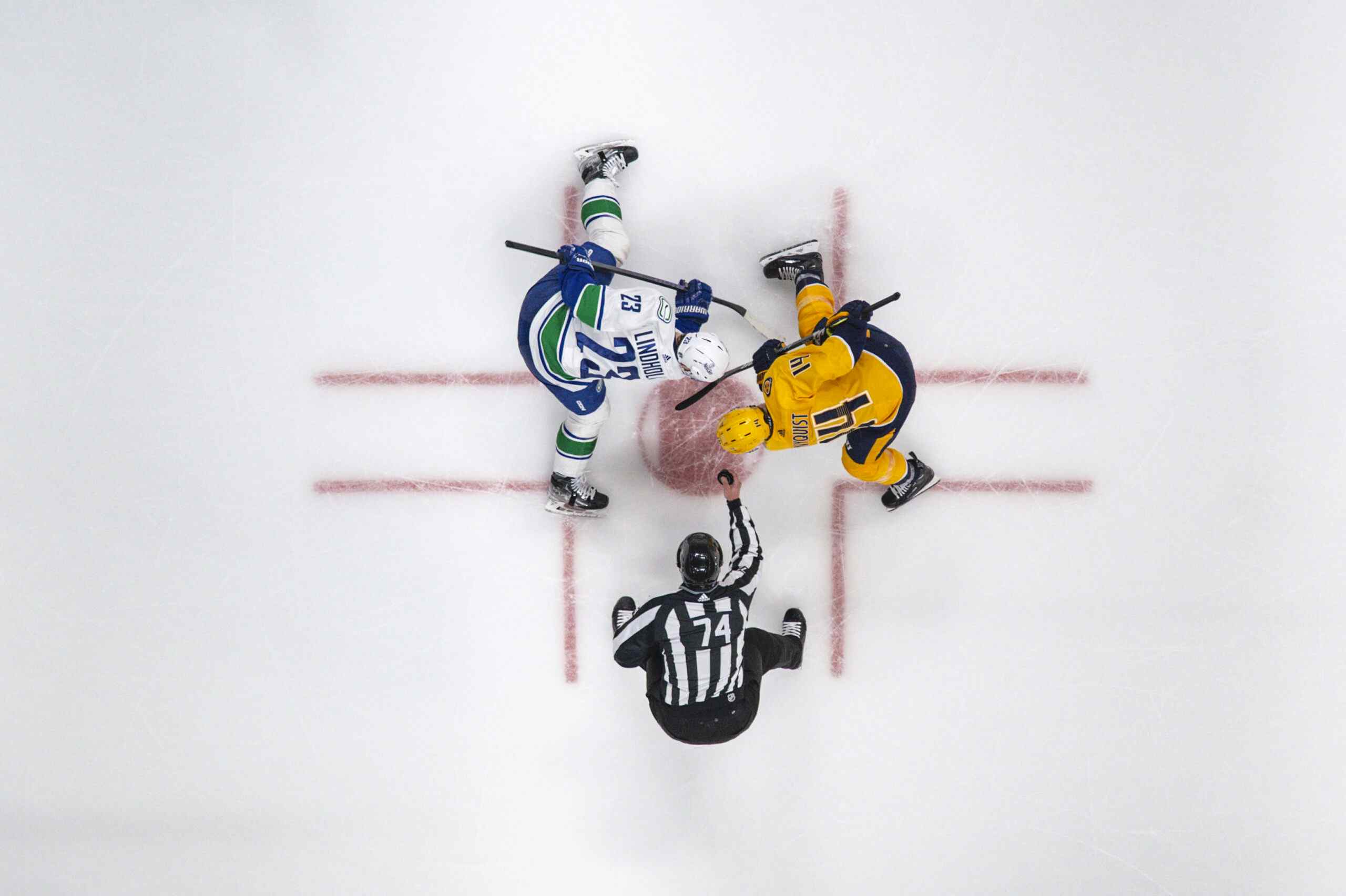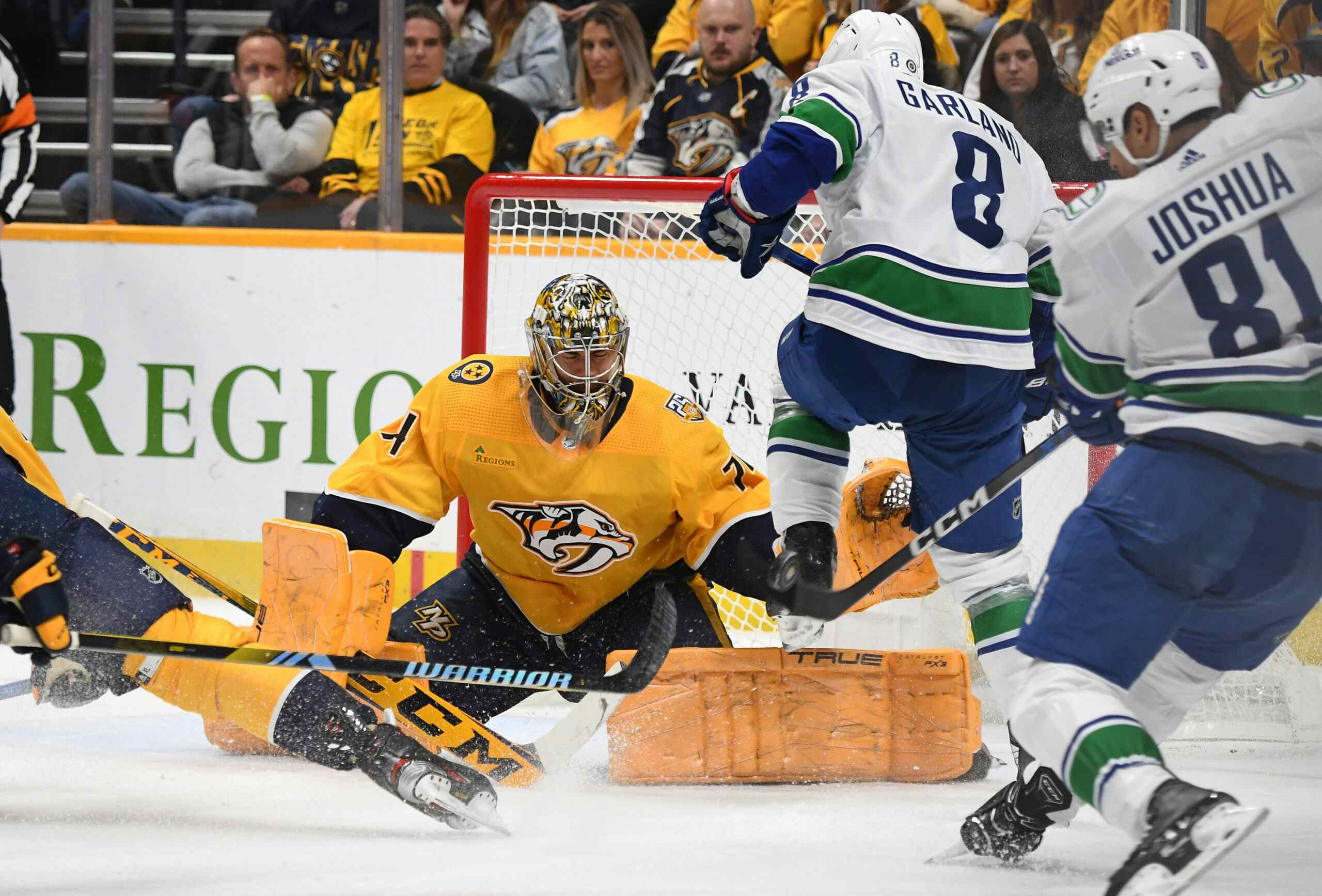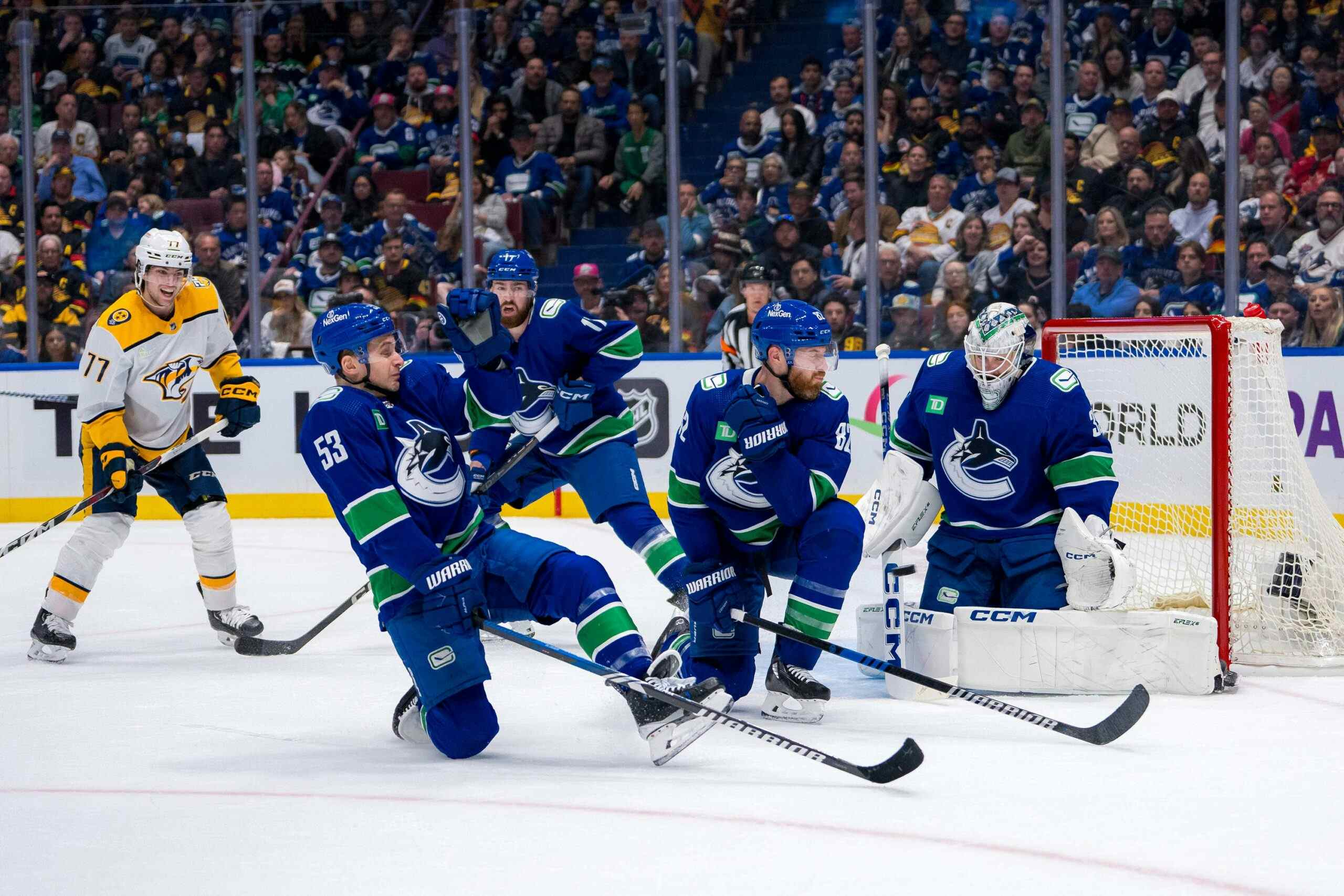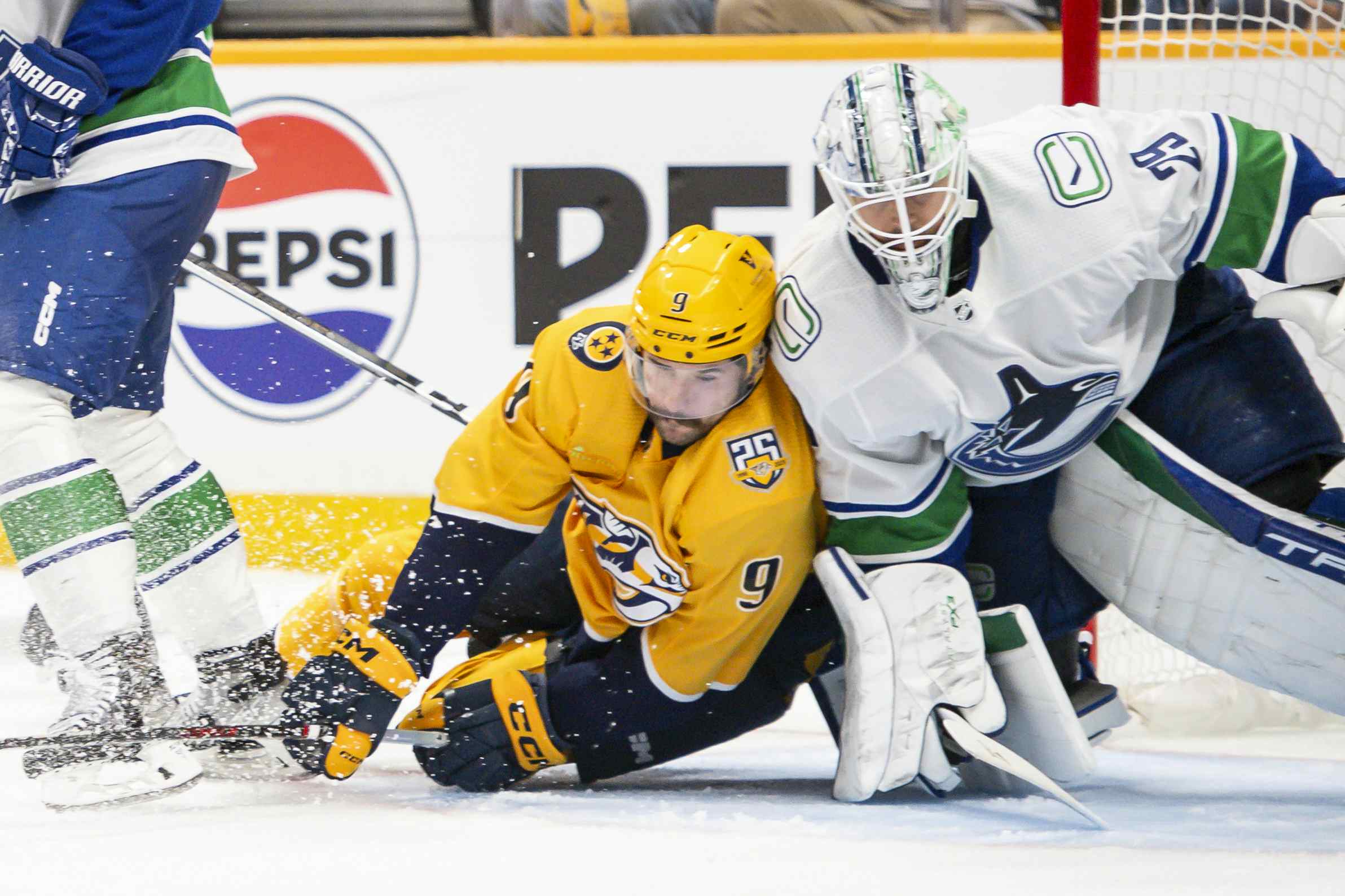Brock Boeser’s first postseason with the Vancouver Canucks went under the radar
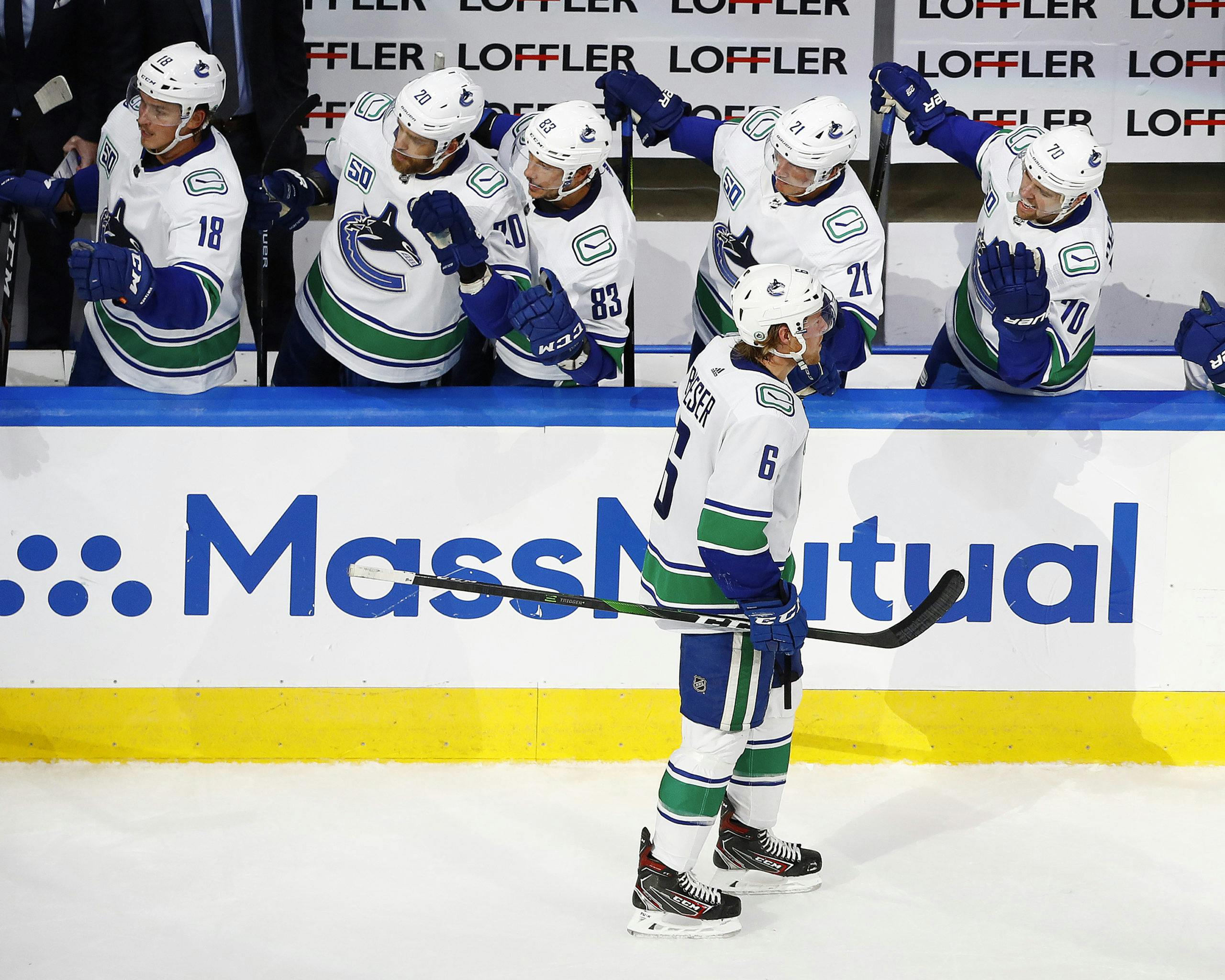
By Bill Huan
3 years agoIt was an up and down postseason for Brock Boeser, who had flashes of brilliance against his hometown team but appeared sluggish at times during the first two rounds of the playoffs.
An argument can be made that Boeser was the team’s most dynamic forward during the play-in round against the Minnesota Wild, as he seemed to have added an extra burst to his skating and was relentless during puck battles. He notched three points in four games, including a game-winning goal which he dedicated to his late friend.
However, Boeser was much less noticeable against St. Louis. Although he scored five points in the six-game series, only one of those came during 5 on 5. Moreover, Boeser only registered six shots on goal, which was a far cry from the nine he put up against Minnesota.
The start of the Vegas series was much of the same for him. Through the first four games against the Golden Knights, Boeser only managed one assist and five shots on goal. He averaged less than 17 minutes of ice time and was separated from his usual spot alongside Elias Pettersson and J.T. Miller on Vancouver’s top line.
Fortunately, Boeser regained some of his rhythm in the last three games of the series. He scored the tying goal in game five while also assisting on Pettersson’s game-winner. It shouldn’t come as a surprise that Boeser had 11 shots on goal over those three matches since he’s most dangerous when he’s aggressively putting pucks on net. He went scoreless over the final two games against Vegas but still managed to produce quality chances, such as the one in which he forced Robin Lehner to make the best save of the playoffs thus far.
Over the entire playoff run, Boeser controlled shot attempts only 43.44% of the time and had an expected goal share of 43.13% at 5 on 5. These numbers are pretty poor but it’s worth remembering who his primary matchups were; over the final two rounds, Boeser spent most of his time against the Mark Stone and Ryan O’Reilly lines, which are two of the best play-driving lines in the entire league. As previously stated, he also played some minutes without Pettersson and Miller, who are Vancouver’s most possession dominant forwards.
Contrary to what the stats show, the Canucks actually outscored their opposition 10-7 with Boeser on the ice at 5 on 5. With his defensive game improving vastly over the past two seasons, it shouldn’t come as a surprise to see that the team had a positive actual goal rate when Boeser was playing.
Many fans would like to see him score more goals, but the reality is that Boeser has rounded out his overall game and turned into a very good two-way player. His stats might appear lacklustre at first glance, but he contributed during key moments and was reliable defensively, which is why Boeser scores a solid B for his performance during the playoffs.
Grade: B.
All stats from Natural Stat Trick.
Recent articles from Bill Huan
- From Pettersson’s wing to the low minute man: How should the Canucks utilize Andrei Kuzmenko moving forward?
- We watched every one of Bo Horvat’s goals since 2021 to break down his evolution into an elite goal-scorer with the Canucks
- Four Canucks storylines that everyone should be thankful for this Christmas

